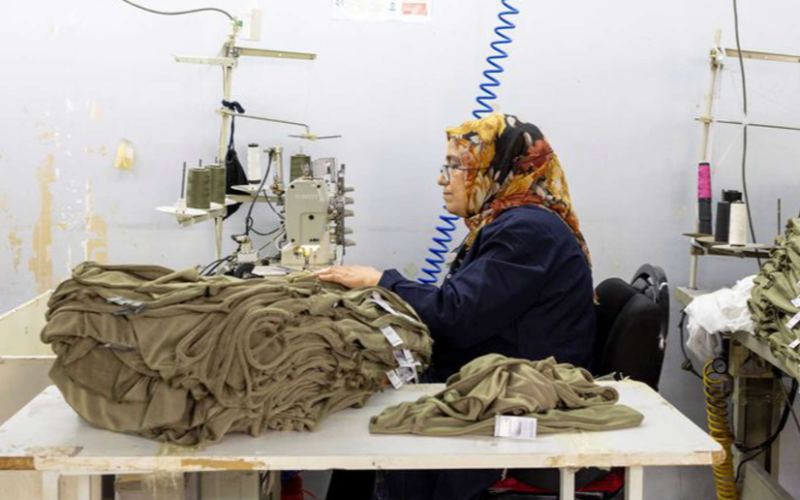Turkish clothing manufacturers, holding the position of the third-largest apparel suppliers to Europe, are confronting escalating production expenses and the risk of falling further behind their Asian counterparts due to recent tax hikes on textile imports imposed by the government. In a bid to bolster local yarn and fabric manufacturers facing a surge in cheaper imports, Ankara increased tariffs by 30-100% on hundreds of incoming textile products. This move, however, is putting significant pressure on the apparel industry, a major employer in Turkey, which caters to heavyweight European brands such as H&M, Mango, Adidas, Puma, and Inditex.
Industry leaders express concerns that the heightened taxes are squeezing profit margins and raising the possibility of job cuts as Turkish producers grapple with increased import costs, losing ground to competitors like Bangladesh and Vietnam. While exporters can theoretically seek exemptions from the tax, industry sources indicate that the exemption process is both expensive and time-consuming, often proving impractical for many companies.
Even before the recent tax adjustments, the sector faced challenges such as soaring inflation, diminished demand, and reduced profit margins attributed to factors like the overvalued lira, effects of interest rate cuts, and other economic policies. Turkish-made clothing, particularly a t-shirt, is now approximately 40% more expensive for European consumers compared to a similar product from Bangladesh, marking a substantial increase from the 15-20% gap observed just a couple of years ago.
Seref Fayat, Chairman of Turkey’s TOBB Clothing and the Apparel Industry Assembly, notes that fashion brands can endure price increases up to 20%, but anything beyond that risks market losses. Timur Bozdemir, President of DF Manhattan Inc, emphasizes the need for Turkey’s apparel industry to shift from mass production to value-added to remain competitive in the face of rising costs.
Turkey, a significant player in the global textile and clothing export market, exported $10.4 billion in textiles and $21.2 billion in clothing last year, ranking as the world’s fifth and sixth largest global exporter, respectively. Despite its prominent position, Turkey’s share of the European market declined from 13.8% in 2021 to 12.7% in the following year. The recent tax adjustments further exacerbate challenges for the sector, impacting textile and apparel exports, which fell more than 8% through October this year.
The textile sector, facing increased competition from cheaper imported fabrics and yarns, witnessed a 15% decline in registered employees through August. Capacity utilization rates have also dropped, with sector officials stating that many yarn manufacturers are operating at nearly 50% capacity. The lira’s depreciation, by 35% against the dollar this year and 80% over five years, further complicates matters. Exporters argue that the lira should depreciate more to align with inflation, which exceeds 61%.
As Turkey’s textile and apparel sector grapples with these challenges, industry insiders emphasize the need for strategic shifts and government support to navigate the evolving landscape and maintain its position as a key player in the global market.








